#legibility
Text
As it assumes the form of nonverbal knowing, of a thinking outside of language, what begins as a seemingly scientific, because denotative, act, in spite—or perhaps because—of its ambition to discern and record (thought) objectively, ends up rejoining the literary and artistic forces of modernity to become an exercise in esotericism, in which objectivity seems indistinguishable from solipsism, from the arcaneness of intransitive (because self-referential) speech. Offering the semblance of positivity and universality, the graphs and diagrams are simultaneously cryptic and enigmatic, their readily visible forms impenetrable even to sophisticated readers, who are typically at a loss as to what they mean without detailed explanations, without a careful reconsideration of the words.''
The coexistence of such polarities of meaning making suggests that diagrammatic denotation—or, more precisely, the diagram as denotation—needs to be rethought as an epistemic conundrum, one in which the ongoing modernist sense of a crisis of language continues to play itself out in the form of a collective fantasy. This is the fantasy that language is somehow disposable, that if we could simply find a way to get to the bottom of things—geometrically, algebraically, statistically, or however—we ought to be able to arrive at that utopian, evicted state of not needing language altogether. Beyond the dots, the lines, the curves, the circles, the squares, the numbers, and other figures on the page, there persist a wish and a demand that bestow on diagrammatic denotation the import of something excessive, something obscene.
To put it differently, when graphs and diagrams are used in theoretical writings in the literary humanities and interpretative social sciences, they serve in effect as little theaters where the unresolved relationship between words and things repeatedly stages itself as a spectacle, calling attention to what Franco Moretti calls a “total heterogeneity of problem and solution.”'* Side by side with the words, the diagrams appear as something like a language, albeit one that dreams of being without language; something like writing, albeit one that dreams of doing without writing. In their proximity to words, the graphs and diagrams yearn, as though with a kind of mimetic desire, to take language’s place, to usurp writing’s hold on abstraction by becoming the preferred native informants of thought.
Rey Chow, A Face Drawn in Sand: Humanistic Inquiry and Foucault in the Present [emphasis added]
21 notes
·
View notes
Text
Swiss Design Project
Grace, our Graphic Design blogger, writes about one of her projects from her Introduction to Typography class. Incorporating Swiss Design, students must create a poster based off of a fortune. Grace shows some of her sketches, and her process.
#Marywood
This week in my Introduction to Typography class with Paul Georgetti, we learned about “Swiss Design” and are now creating a project based off of this style.
To learn more about Swiss Design, the background, and the distinctive features of this style, read this article I found from Print Magazine!
Swiss Style: The Principles, the Typefaces & the Designers
Project Specifications
So, for my…
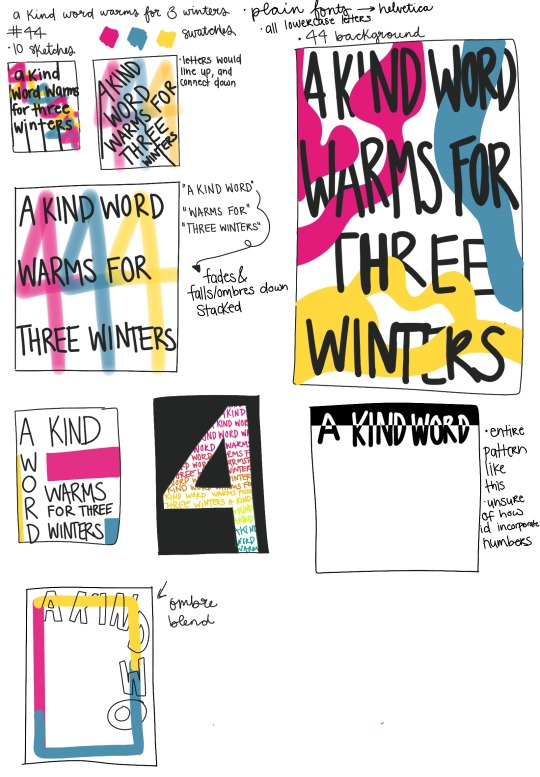
View On WordPress
#Adobe Illustrator#Art#bold#bright#Bright Colors#design#design process#fortune#fortune cookie#Grace DiNella#Graphic Design#helvetica#Helvetica Bold#hierarchy#illustrator#inspiration#kindness#Legibility#Lucky numbers#Marywood Art#Marywood Art Department#Marywood University#Marywood University Art Department#poster design#process#procreate#Swiss Design#Swiss Style#Typography#vibrant
3 notes
·
View notes
Text
SCoR - Section II, Ch. 1, Part B "Origins of Institutionalization"
summary of “The Social Construction of Reality” by Berger and Luckmann, gotta repost because Tumblr fucked up the article slugs and I couldn’t link to individual posts correctly
I. Repeated actions become habitual/patterned, thus reproducible with less effort; NB this isn't a specifically social phenomenon.
II. Habitualization provides psychological relief of choice limitation, and also frees energy for times when innovation/deliberation is required to respond to a situation.
III. Habitualization also means we don't need to define each response on the fly; prediction becomes possible, even precise.
IV. Habitualization precedes institutionalization, and can take place in isolation, but in practice it takes place in the context of an institution or institutions.
V. institutions are formed when there is a reciprocal/multilateral typification of particular types of actions by particular types of actors ("the president shall address the congress")
VI. Inherent in the institution are: historicity and control. Historicity, because institutional patterns aren't formed instantly ("institutions always have a history, of which they are products"); control, because institutional patterns are typified, therefore limited, even regardless of actual enforcement behaviors or patterns as such that are part of the institutional structure.
VII. Institutionalization is incipient in every social interaction continuing in time.
VIII. That is, even two individuals thrown together without a shared social context WILL start to typify each other's behaviors - the initiation of roles, patterns of action, historicity, etc.
IX. The participants in this process benefit from it in that they end up with more ability to predict the other's actions - less astonishment/fear, more familiarity.
X. Any repetition tends to some degree of habitualization; any observation tends to some degree of typification; but in an ongoing bilateral social situation, certain actions are more likely to be habituated/typified. Which ones?
XI. Generally, that which is relevant to both parties (hereafter, A and B). This obviously varies based on material conditions, however, usually communications come first, followed by labor/sexual/territorial relationships, etc. all of which will be inflected by the prior socialization of A and B.
XII. Then, if A and B have a child ("C"), C will experience the parental patterns as objective historical givens, NOT contingent constructs.
XIII. In other words, prior to C, A and B construct a world that is entirely transparent and accessible to them, fluid and mutable. After C, and to C, this world is objective and opaque - and this also affects A and B since they now need to keep things more consistent for C's sake.
XIV. This is the birth of the social world we are familiar with, i.e. an objective fact received from without - the child takes it all for granted, the signifier IS the signified, etc.
XV. This extends to the world of institutions that we live within - objective, external, incomprehensible except via experience.
XVI. Nevertheless, this is still a human-constructed reality - "Society is a human product. Society is an objective reality. Man is a social product." - in an ongoing dialectical interaction.
XVII. Institutional reality also requires legitimation - ways in which it can be explained and justified to those who do not have a direct memory of its creation. These legitimations are learned as part of socialization into a given institutional order.
XVIII. As institutions depart form the original social processes that formed them, there is a corresponding increase in the need for more explicit mechanisms of social control - folks must be "taught to behave" then "kept in line."
XIX. In practice, mutual interactions between people or groups lead to multiple tracks of institutionalization which don't necessarily share a functional or logical integration.
XX. Nevertheless, institutions (which persist) do tend to some level of functional/logical coherence, implying some level of common relevance/shared meaning among participants. Note that role performances can (and must?) be functionally segregated, but MEANINGS tend to a consistency of some sort as people try to understand their experiences as occurring within some kind of framework. There may be a physiological cause for this drive*, but it isn't necessary to assume one to appreciate this habit as a real empirical phenomenon.
XXI. "It follows that great care is required in any statement… about the 'logic' of institutions." The 'logic' is not 'within' the institution, but rather is imposed by our reflections about that institution.
XXII. Language provides the fundamental well of logic which can be drown on to explain the institutional world, and all legitimations are expressed in language. This also connects with the social "knowledge" that the world one inhabits is a consistent and logical whole, since from that fact comes efforts to explain experience in terms of the pre-existing internalized social knowledge.
XXIII. So, institutions are integrated, but this is "not a functional imperative of the social processes that produce them;" rather, it is a byproduct of individual need to see their actions as part of a subjectively meaningful whole.
XXIV. Given this, it follows that analyzing social phenomena/institutional order would primarily depend on analyzing the understanding of the social knowledge of the people composing these institutions, of which complex theoretical legitimations are a part but by no means the whole. In fact, "the primary knowledge about the institutional order is knowledge on the pre-theoretical level," the sum total of "what everybody knows" about that order.
XXV. Since this knowledge is socially objectivated AS knowledge, deviations from it ("depravity", "insanity", "ignorance") occupy an inferior cognitive status; because this social knowledge is coextensive with "what is knowable," deviations are seen as deviations from reality itself. "Knowledge in this sense is at the heart of the fundamental dialectic of society… [it is] a 'realization' in the double sense… of apprehending the objectivated social reality, AND in the sense of … producing this reality."
XXVI. For example, in the course of division of labor, an area-specific body of knowledge is developed, crystallized in language, and transmitted to particular actors; the knowledge thus transmitted becomes an objectivation that serves to structure and channel further actions of its type.
XXVII. Then, this body of knowledge is available to the next generation as an objective truth which has the power to shape an individual into an instance of that actor, which definition only has meaning inside the social world that hosts this knowledge. With variation, this same process applies in ANY area of institutionalized conduct.
----
Notes:
re. V - The word "institutionalization" was used in the book where is used "formed"; "institutionalization" is overloaded to also mean "molding a human as an institutional actor" IMO (ref Brooksy from Shawshank Redemption)
re. XII - Unlearning the "objectivity" of parental dictates is probably a universal developmental phase? Or not - but maybe recognizing it is?
re. XVII - I can imagine an institution so totalizing that no legitimation is required - "force of nature" - conflict/discrepancies generate questions that must be answered, but if no discrepancies, no questions? Also implies that such institutions may already exist but we wouldn't know - because we don't question them or they are so universally taken for granted (i.e. the concept of death itself, see The Fable of the Dragon-Tyrant)
re. XX -
* I added the caveat about persistence - might be gratuitous, but seems relevant given my interest in institutional life cycles i.e. they CAN die or degrade or change, so how? Dis-integration of belief seems related, but is it symptom or cause? Or both?
** I think Energy Minimization IS this physiological (or even pre-physiological/physical) cause(? need? drive?)
re. XXI - Found this paragraph extremely surprising statement at first, but then less so - interpreted as another instance of "The institution is in our minds" - but might be wrong about this!
re. XXIII - So what happens if folks no longer feel the need or have the ability to do this integration of experience into a "meaningful whole?"
If institutional strength is in the minds of its members, then institutional weakness would result from folks not feeling a need to integrate their experiences into the institutional patterns
"all is vanity" - "integration is pointless" (cynicism?) as a concept is a degenerate simplicity, saving much effort - folks don't have to think hard about things or meaningfully engage with the world they inhabit, because all effort is proactively deemed a waste of time
and in a complex technical society such as ours, which is relatively productive and protective of its members, a given individual member doesn't NEED to engage with many of its structures in order to survive (vs. eg the medieval peasant of my imagining)
leads to a dislocation/disconnection/differentiation between 'social integrators' eg. folks who commit to institutional logics and embody them, pulling together and strengthening them, vs. 'social neutrinos' - folks existing without integrating or participating much ("consumers", maybe!)
hypothesis: industrial productivity gains not put into "shorter workdays" (i.e. fewer hours assigned to materially-productive labor) but rather in giving less of a shit about the world we find ourselves in; anomie/ennui
drivers(?)
existentialism/scientific revolutions driving human "place in universe" farther and farther out of center (Thomas Kuhn, Eric Hobsbawm)
nb existential philosophy seems to develop roughly parallel to industrial revolution, initially dislocated (kierkegaard?) provide language for those who follow
american "rugged individualism"
contra "network", individual DOES matter, but lives in a matrix (hah) of institutions that he believes he cannot influence - which makes it so
institutional immune systems - change-from-within resistance (Le Chatelier's Principle again?)
institutions also try to change their environment to be more hospitable (Legibility)
re. XXV - See also XVI for the cycle being described in more words here
#the social construction of reality#sociology#institutionalization#the shawshank redemption#energy minimization#cynicism#ennui#anomie#thomas kuhn#eric hobsbawm#existentialism#scientific revolution#rugged individualism#soren kierkegaard#network#le chatelier's principle#james scott#legibility#the fable of the dragon-tyrant
0 notes
Text

The Swiss strike again: bionic reading!!!
Test it: https://reader.bionic-reading.com
Via digitalsynopsis
0 notes
Text










Another selection of some of the better names I've come across in Regency era newspapers recently.
#names#history#1790s#1800s#1810s#regency#regency era#yesterday I came across a 'Pleasant Cowmeadow' which I really wanted to include but it's handwritten in not the most legible handwriting
8K notes
·
View notes
Text
I wrote a blog post on legibility online!
my first medium post as a partner person!!
(it's also on my blog if you don't have or want medium, olu.online!)
1 note
·
View note
Text
Exceeding Least Restrictive Environment with Niche Construction and the Honor of Legibility
UDL creates a learning environment that is the least restrictive and most culturally responsive, trauma-informed environment for all students
.If Equity is a Priority, UDL is a Must | Cult of Pedagogy
In our little community of neurodivergent and disabled people, we try to go beyond “least restrictive environment” via “niche construction”. Here’s how we define that:
Niche Construction
In…

View On WordPress
#cavendish space#education#honor#least restrictive environment#legibility#niche construction#positive niche construction#power#privilege#universal design for learning
0 notes
Text
the thing is there's like, a point of oversaturation for everything, and it's why so many things get dropped after a few minutes. and we act like millennials or gen z kids "have short attention spans" but... that's not quite it. it's more like - we did like it. you just ruined it.
capitalism sees product A having moderate success, and then everything has to come out with their "own version" of product A (which is often exactly the same). and they dump extreme amounts of money and environmental waste into each horrible simulacrum they trot out each season.
now it's not just tiktokkers making videos; it's that instagram and even fucking tumblr both think you want live feeds and video-first programming. and it helps them, because videos are easier to sneak native ads into. the books coming out all have to have 78 buzzwords in them for SEO, or otherwise they don't get published. they are making a live-action remake of moana. i haven't googled it, but there's probably another marvel or starwars something coming out, no matter when you're reading this post.
and we are like "hi, this clone of project A completely misses the point of the original. it is soulless and colorless and miserable." and the company nods and says "yes totally. here is a different clone, but special." and we look at clone 2 and we say "nope, this one is still flat and bad, y'all" and they're like "no, totally, we hear you," and then they make another clone but this time it's, like, a joyless prequel. and by the time they've successfully rolled out "clone 89", the market is incredibly oversaturated, and the consumer is blamed because the company isn't turning a profit.
and like - take even something digital like the tumblr "live streaming" function i just mentioned. that has to take up server space and some amount of carbon footprint; just so this brokenass blue hellsite can roll out a feature that literally none of its userbase actually wants. the thing that's the kicker here: even something that doesn't have a physical production plant still impacts the environment.
and it all just feels like it's rolling out of control because like, you watch companies pour hundreds of thousands of dollars into a remake of a remake of something nobody wants anymore and you're like, not able to afford eggs anymore. and you tell the company that really what you want is a good story about survival and they say "okay so you mean a YA white protagonist has some kind of 'spicy' love triangle" and you're like - hey man i think you're misunderstanding the point of storytelling but they've already printed 76 versions of "city of blood and magic" and "queen of diamond rule" and spent literally millions of dollars on the movie "Candy Crush Killer: Coming to Eat You".
it's like being stuck in a room with a clown that keeps telling the same joke over and over but it's worse every time. and that would be fine but he keeps fucking charging you 6.99. and you keep being like "no, i know it made me laugh the first time, but that's because it was different and new" and the clown is just aggressively sitting there saying "well! plenty of people like my jokes! the reason you're bored of this is because maybe there's something wrong with you!"
#this was much longer i had to cut it down for legibility#but i do want to say i am aware this post doesnt touch on human rights violations as a result of fast fashion#that is because it deserves its own post with a completely different tone#i am an environmental educator#so that's what i know the most about. it wouldn't be appropriate of me to mention off-hand the real and legitimate suffering#that people are going through#without doing my research and providing real ways to help#this is a vent post about a thing i'm watching happen; not a call to action. it would be INCREDIBLY demeaning#to all those affected by the fast fashion industry to pretend that a post like this could speak to their suffering#unfortunately one of the horrible things about latestage capitalism as an activist is that SO many things are linked to this#and i WANT to talk about all of them but it would be a book in its own right. in fact there ARE books about each level of this#and i encourage you to seek them out and read them!!! i am not an expert on that i am just a person on tumblr doing my favorite activity#(complaining)#and it's like - this is the individual versus the industry problem again right because im blaming myself#for being an expert on environmental disaster (which is fucking important) but not knowing EVERYTHING about fast fashion#i'm blaming myself for not covering the many layers of this incredibly complicated problem im pointing out#rather than being like. yeah so actually the fault here lies with the billion dollar industries actually.#my failure to be able to condense an incredibly immense problem that is BOOK-LENGTH into a single text post that i post for free#is not in ANY fucking way the same amount of harm as. you know. the ACTUAL COMPANIES doing this ACTUAL THING for ACTUAL MONEY.#anyway im gonna go donate money while i'm thinking about it. maybe you can too. we can both just agree - well i fuckin tried didn't i#which is more than their CEOs can say
15K notes
·
View notes
Note
What do you like about the Diasomnia boys if I may ask?
I always love hearing about the different reasons people enjoy characters.
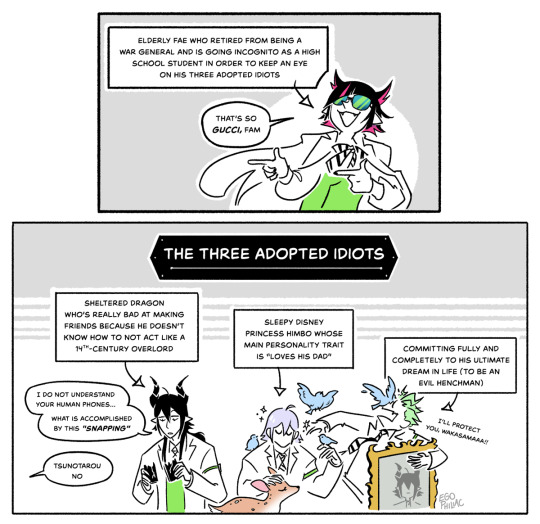
I mean, c'mon. he has split custody over Sebek okay
also, Lilia in particular has maybe the best timeskip character development of all time
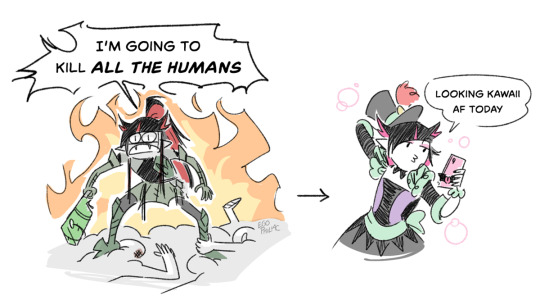
#art#twisted wonderland#twisted wonderland spoilers#twisted wonderland episode 7 spoilers#twisted wonderland book 7 spoilers#twisted wonderland episode 7 chapter 4 spoilers#twisted wonderland book 7 chapter 4 spoilers#stage in playful land#i hope this is legible whoops#anon i am sorry but you made the fatal mistake of asking me to talk about diasomnia#insert 'i just think they're neat' jpg#i do like the other characters a lot but they are definitely my favorites#they just hit a lot of my favorite things in characters i guess!#yes even you sebek even though you keep shrieking NINGEN at me#(it's okay he gets Character Development™ later)#and their dynamic! it's great! these guys frikking love each other SO much and they WILL have terrible terrible angst about it#ohoho delicious#give me all your emotional hangups baybeeeee#also somewhere in there i went from 'i like them all equally (but lilia is the most fun to draw)'#to 'lilia is absolutely my favorite (and still the most fun to draw) (EVEN MORE fun now thank you swishy ponytail!)'#(it was probably when his candy coating got a little scratched and whoops all the tragedy fell out)#(where's that 'get loved loser' post because i need to staple it to lilia's forehead)#i am extremely bad at putting things into words so please don't ask me to explain it any further#just know that the diafam is everything to me and if we don't get more episode 7 soon i'm going to crumble into dust and blow away#we'll be getting the crowleytimes on monday and maybe there will be. idk. some foreshadowing or something in his groovy#probably not but LOOK i'm desperate
3K notes
·
View notes
Text
Apparently much-needed reminder that reposting artists' art (by saving the images or screenshotting them and reuploading them yourself) on other platforms without the artists' expressed permission and without credit is theft and an insult to their passion and craft. You are profiting (in views, in attention, in feedback) from someone else's work and ideas, who do not get that feedback for sharing their creation.
If you are an art reposter, you are a thief and I have no respect for you.

#learn basic internet etiquette i am begging but also holding a knife. yes i'm mad. more about others than myself.#do you know how many artists i have seen leave social media because their art started being reposted all over?#tip: way too fucking many#i've had many people tell me about people reposting my art on tiktok#no one ever asked to repost my art on tiktok. ever. they just save super fried bad crunchy jpegs of my art and repost them#they get 20k likes and don't even bother naming me#also a reason i started signing my name more legibly and why my blog web address is always there but apparently no one can even read that#a few people got an ok for translations on other platforms though#i'm going to be annoying with this post and reblog it a few times to try to catch the people who apparently need to be told#tiny skk adventures#nawy's comics#nawy's doodles#apparently those are reposters' favourites so here look at this
4K notes
·
View notes
Text
Can AI Choose a Font for Your Graphics?
When it comes to graphic design, selecting the right typeface is critical. The typeface you choose can greatly impact the message and mood of your design, and ultimately determine whether your content is effective or not. With so many fonts to choose from, the process of selecting the perfect typeface can be overwhelming for graphic designers. However, artificial intelligence (AI) has made…
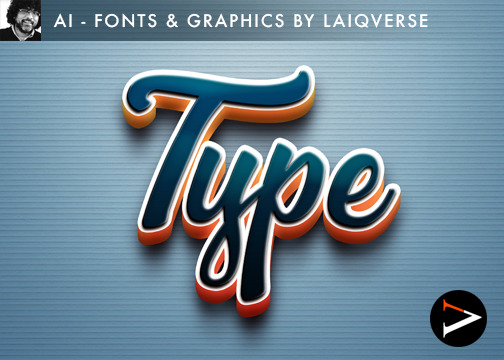
View On WordPress
#Adobe Font Finder#AI#artificial intelligence#brand guidelines.#Design#Designer#font selection#Google Font Pairings#Graphic design#laiq ahmed qureshi#LaiqQureshi#laiqverse#legibility#Readability#typeface
1 note
·
View note
Text
Squirting british step mom creampie
Andi James in Step mom forced by son
Gay in suit sucking uncut cock
Gay gym porn movieture Jordan Thomas Tops Josh Obrian
Latina amateur girlfriend gets ass and pussy spread open while asleep
Watch teenager Linda Fernandez get on her knees in public to suck cock then gets fucked in asshole
Latina Craving Black Dick Not Little Dick White Boys
Longest squirt full version
MILFs Ava Addams & Francesca Le big tits threesome - Tonight's Girlfriend
Adria Rae hot sex
#proponer#deceived#unpenanced#predisclosing#LTJG#ozonic#gandalf#legibility#disworth#unstuffiness#platytropy#effusiometer#aerophilic#Jillane#antecabinet#unstuffily#Katyusha#nonimitativeness#caudation#prophet-flower
0 notes
Text
I like the idea of better, more inclusive, sentence structuring. For example: something legible, designed for people with general reading comprehension issues… Just having options for legibility’s sake, and having them be readily available/accessible, could change the world (or at least some people's worlds). There are options for legibility, for those with dyslexia. But dyslexia is not the only reading-related disorder, that would/could benefit from a legibility aid.
I personally use extra commas, to help me understand where the sentence’s connecting clauses start and end. I also add in semi-colons; sometimes I add in dashes— and sometimes I just practice full restating of an independent clause, when I’m connecting another dependent clause, to help me (and others) eliminate the vagueness.
Yes, this method of altering sentences, to make them more inclusive, IS grammatically “incorrect”. And yes, this method of altering sentences, to make them more inclusive, can be wordier, too. But if this method helps someone read, then who cares? If this method doesn’t help you, then the method was not made for you, and that is okay.
#reading comprehension#reading comprehension deficit#adhd#attention deficit disorder (add)#attention deficit hyperactivity disorder#add#reading comprehension aid#reading comprehension aids#dyslexia#reading#legibility#legible#words#help#helpful#hope#hopeful#(:
1 note
·
View note
Text


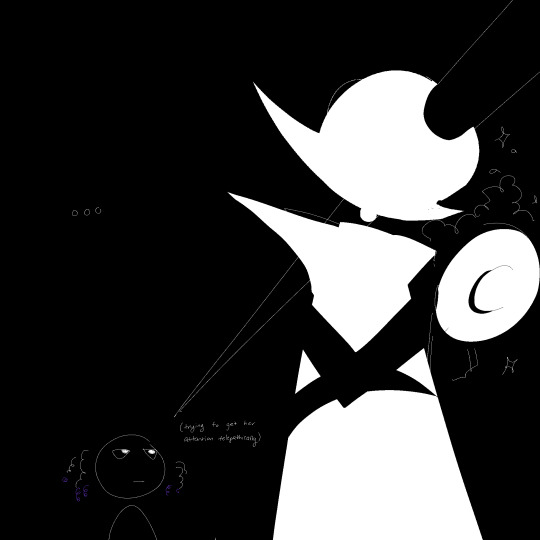


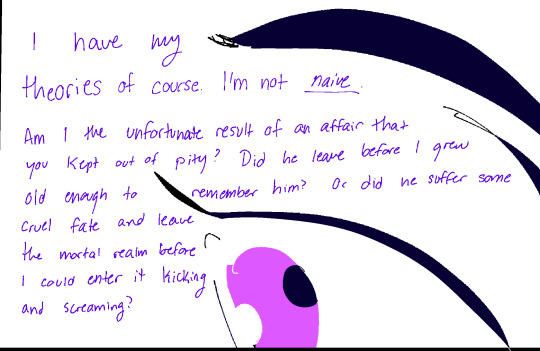
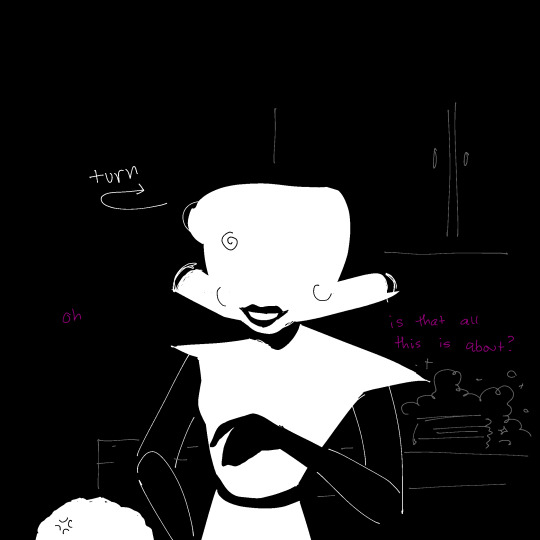




rose lalonde, age 8: what did she mean by this. what mind games is she playing
rose lalonde, age 13: oh.
#THIS WAS ORIGINALLY GOING TO GO IN AN ENTIRELY DIFFERENT DIRECTION BUT I COULDN'T GET THE DIALOGUE TO SOUND RIGHT....#also i have no idea if these are even legible i drew these in the dark.#homestuck#rose#rose lalonde#mom lalonde#doodle#i say things#1k#2k#calware.txt#3k
4K notes
·
View notes
Text


I’ve been drawin the narutos
#naruto#naruto uzumaki#kiba inuzuka#kakashi hatake#sasuke uchiha#fan art#fan comic#apologies for my chicken scratch hopefully it’s legible enough
1K notes
·
View notes
Text

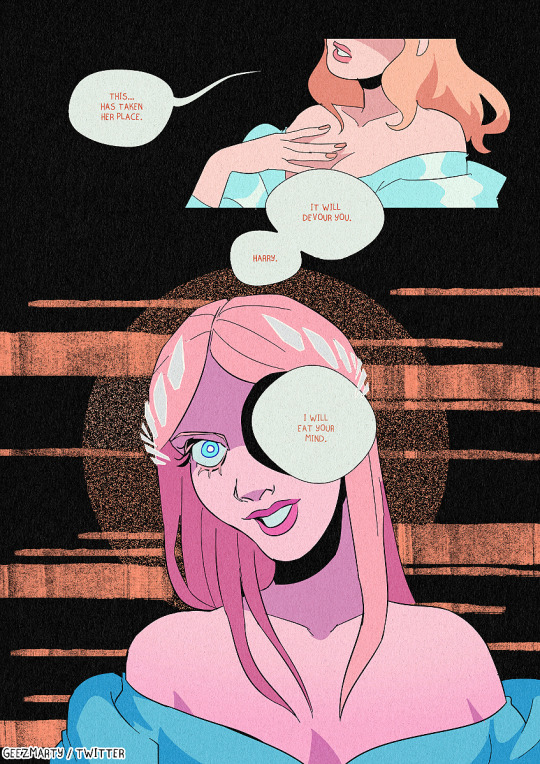



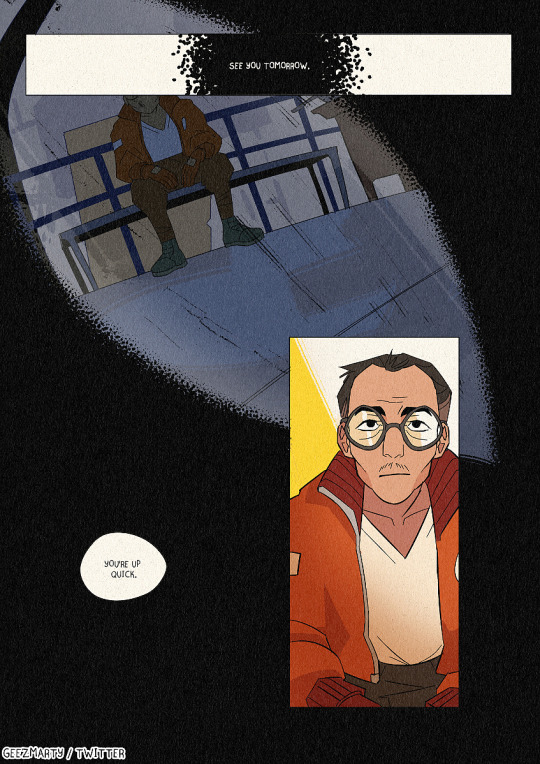

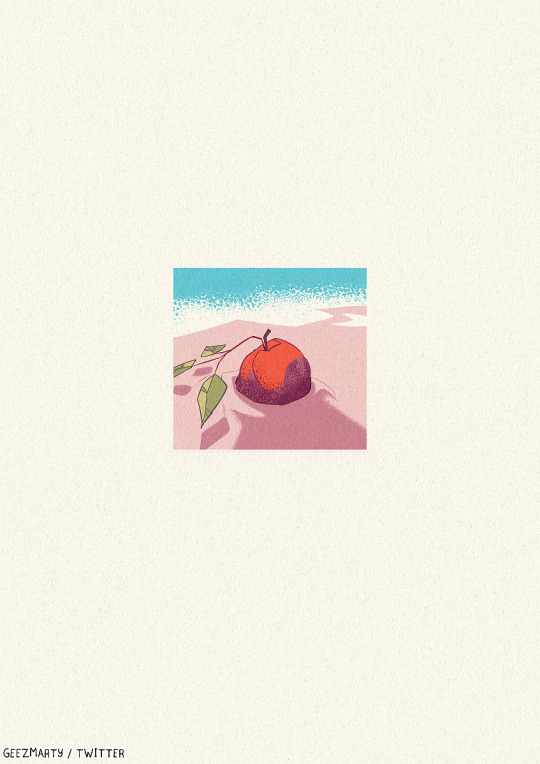
Not a day goes by where I don't think about the beach dream scene so there's a comic based entirely on the in-game script...top 3 favourite moments in disco elysium. to me
#disco elysium#harry du bois#dolores dei#to some extent I guess#disco elysium spoilers#f#hopefully everything is legible and tumblr will not squash this to pieces
7K notes
·
View notes